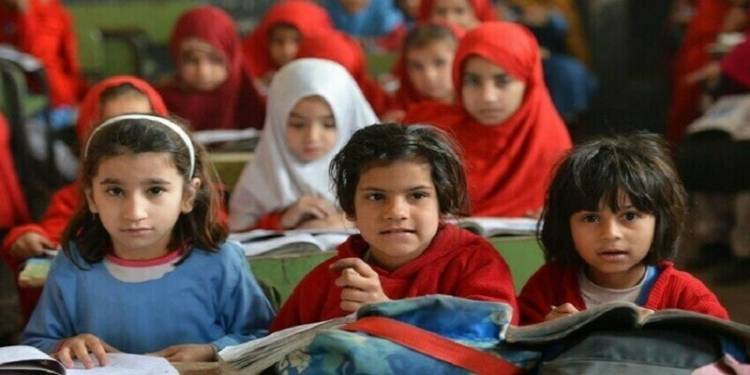
Days after the first infections in the country were detected, the Balochistan government issued a "high alert" for monkeypox cases to school administrators on Saturday.
The provincial directorate of schools directed the district school officers and principals to adopt "appropriate, timely, and prompt implementation action and preventive measures to control monkeypox viral infection spread.
In the event that someone had symptoms, they were instructed to call a hospital and to keep the infected student or individual away from other people.
Pakistan discovered its first two cases of monkeypox in visitors to the country earlier this week.
According to health officials, the monkeypox patient was deported from Saudi Arabia and arrived in Pakistan on April 17 while still exhibiting monkeypox symptoms. On the flight, he shared a seat with another passenger who had monkeypox symptoms.
The monkeypox virus, a species of the genus Orthopoxvirus, is the virus that causes the disease known as "mpox." There are two distinct clades: clade I and Clade II.
According to the World Health Organisation (WHO), a cutaneous rash or mucosal lesions, which can last 2-4 weeks and are accompanied by fever, headache, muscle aches, back discomfort, low energy, and swollen lymph nodes, are the common symptoms of monkeypox, or mpox.
Humans can contract the mpox virus by coming into personal contact with a diseased person, contaminated objects, or infected animals.
The education directorate also cited these signs in its letter, noting that the infected person would typically experience a rash that spread from his face to the rest of his body between 1-3 days after having a fever.
The WHO promised Pakistan earlier today that it would help restrict the monkeypox virus.
The institution added in a statement that, as the situation changed, it has been cooperating with the authorities to investigate the virus's spread.
The WHO has promised to help the government, particularly with lab testing, entrance ports, and sending testing kits.
According to a representative of the Ministry of National Health Services, there is currently no proof of localized monkeypox transmission in Pakistan, and there is little chance that the disease will spread outside the country.
The provincial directorate of schools directed the district school officers and principals to adopt "appropriate, timely, and prompt implementation action and preventive measures to control monkeypox viral infection spread.
In the event that someone had symptoms, they were instructed to call a hospital and to keep the infected student or individual away from other people.
Pakistan discovered its first two cases of monkeypox in visitors to the country earlier this week.
According to health officials, the monkeypox patient was deported from Saudi Arabia and arrived in Pakistan on April 17 while still exhibiting monkeypox symptoms. On the flight, he shared a seat with another passenger who had monkeypox symptoms.
The monkeypox virus, a species of the genus Orthopoxvirus, is the virus that causes the disease known as "mpox." There are two distinct clades: clade I and Clade II.
According to the World Health Organisation (WHO), a cutaneous rash or mucosal lesions, which can last 2-4 weeks and are accompanied by fever, headache, muscle aches, back discomfort, low energy, and swollen lymph nodes, are the common symptoms of monkeypox, or mpox.
Humans can contract the mpox virus by coming into personal contact with a diseased person, contaminated objects, or infected animals.
The education directorate also cited these signs in its letter, noting that the infected person would typically experience a rash that spread from his face to the rest of his body between 1-3 days after having a fever.
The WHO promised Pakistan earlier today that it would help restrict the monkeypox virus.
The institution added in a statement that, as the situation changed, it has been cooperating with the authorities to investigate the virus's spread.
The WHO has promised to help the government, particularly with lab testing, entrance ports, and sending testing kits.
According to a representative of the Ministry of National Health Services, there is currently no proof of localized monkeypox transmission in Pakistan, and there is little chance that the disease will spread outside the country.

